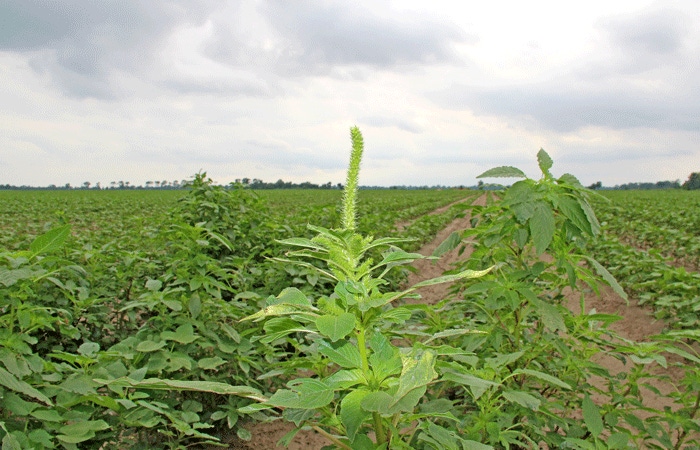
Proposal would limit glyphosate use in resistant weed battle
• In the letter, Gregory Jaffe, CSPI biotechnology director, says that the agency should limit farmers' use of glyphosate especially in geographic areas where resistant weeds are becoming a problem.• Such a limit might forbid farmers from applying glyphosate in the same field two years in a row.
February 10, 2013

The Center for Science in the Public Interest (CSPI) has released a seven-page letter to EPA, urging the agency to limit the use of glyphosate and to undertake other measures to slow the spread of resistant weeds.
In the letter, Gregory Jaffe, CSPI biotechnology director, says that the agency should limit farmers' use of glyphosate especially in geographic areas where resistant weeds are becoming a problem. Such a limit might forbid farmers from applying glyphosate in the same field two years in a row.
Jaffe continues saying, "It's not in farmers' or the biotechnology industry's short-term financial interest to adopt these measures on their own, so the EPA should use its authority to protect glyphosate's effectiveness."
Jaffe's letter notes that EPA instituted similar requirements to protect the effectiveness of insect-resistant Bt crops. Specific recommendations in the letter urge EPA to:
• Limit the use of glyphosate to prevent development and spread of herbicide resistant weeds. Some farmers will continue overusing glyphosate unless doing so is illegal;
• Require farmers to establish and implement resistant-weed management plans. Noting that the agency requests insect-resistant management through planting of refuges, CSPI says similar requirements are needed to manage weed resistance, either through individual farm plans or area-wide management plans;
• Require mandatory disclosure of each herbicide's mode of action (MOA) on the label of herbicide products purchased by farmers. Currently, only some manufacturers voluntarily provide MOA labeling on their products;
• Provide incentives to encourage farmers to implement integrated weed management; and
• Establish enforceable restrictions that reduced the likelihood of development of new resistant weeds if EPA allows the use of existing herbicides such as 2,4-D and dicamba on biotech herbicide-tolerant crop varieties.
You May Also Like



